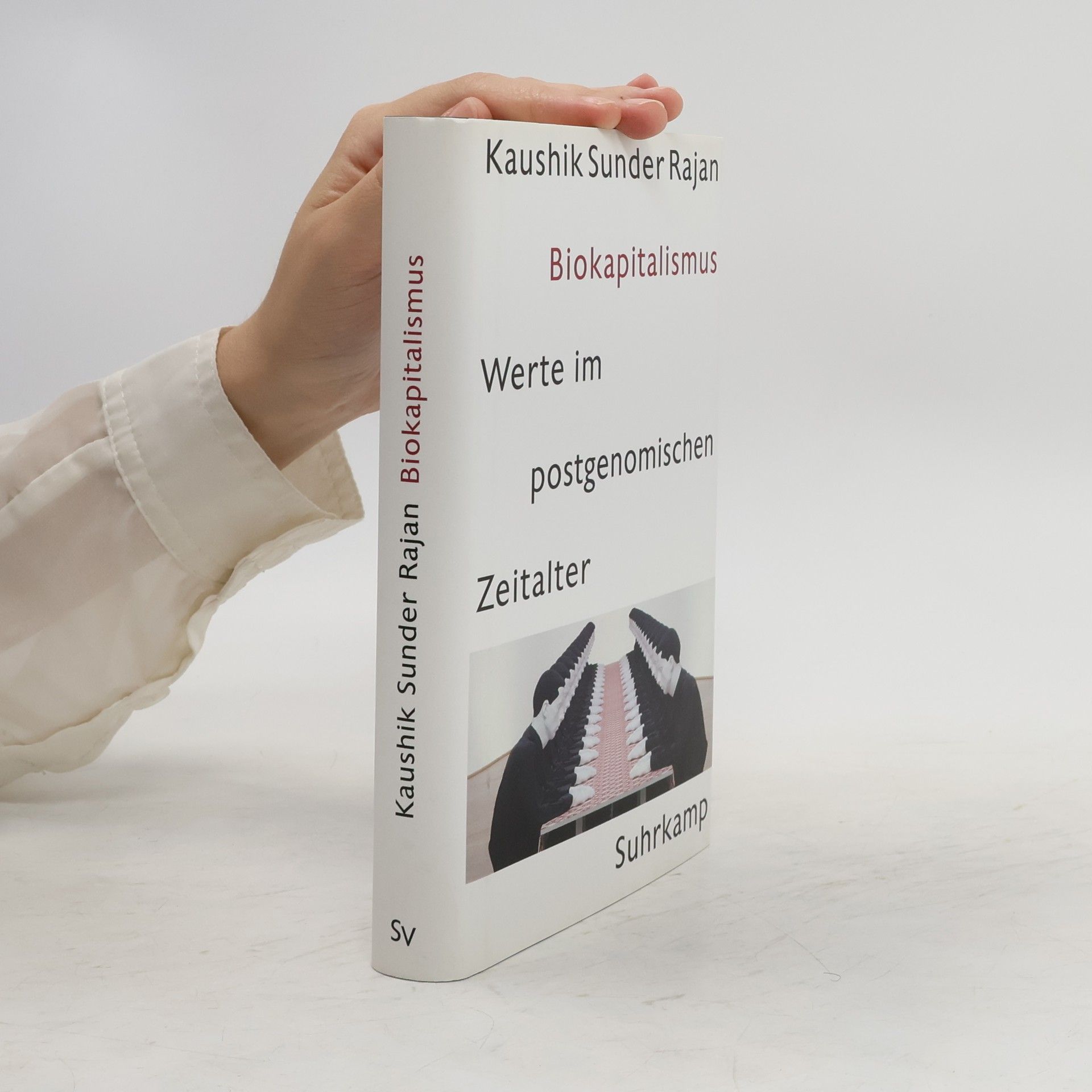Kaushik Sunder Rajan proposes a reconceptualization of ethnography as a multisituated practice that speaks to the myriad communities of accountability and the demands of doing and teaching anthropology in the twenty-first century.
Kaushik Sunder Rajan Libros
Kaushik Sunder Rajan explora principalmente las implicaciones sociales de la bioingeniería. Su trabajo investiga cómo las innovaciones científicas y tecnológicas en genética y biotecnología dan forma a nuestras vidas y a nuestra comprensión de la vida misma. Rajan profundiza en las intrincadas relaciones entre ciencia, economía y cultura, revelando cómo los procesos biológicos se integran cada vez más en los mecanismos de capital y mercado. Su enfoque crítico invita a los lectores a contemplar las consecuencias éticas y sociales de estos avances.



Pharmocracy
- 344 páginas
- 13 horas de lectura
Kaushik Sunder Rajan traces the structure and operation of what he calls pharmocracy-a concept explaining the global hegemony of the multinational pharmaceutical industry. He outlines pharmocracy's logic in two case studies from contemporary India to demonstrate the stakes of its intersection with health, politics, democracy, and global capital.
Als die Frankfurter Allgemeine Zeitung im Juni 2000 sechs Seiten mit den Buchstaben A, C, G und T füllte, war klar: Bei der Entschlüsselung des Humangenoms handelt es sich um eine wissenschaftliche Sensation. Daß sich das öffentliche Humangenomprojekt und Craig Venters Firma Celera Genomics zuvor ein Wettrennen geliefert hatten, zeigt ihr ökonomische Potential: Informationen über den Bauplan des menschlichen Lebens verwandeln sich in Waren – in Biokapital. Damit beginnt, so die These Sunder Rajans, eine neue Phase des Kapitalismus. Über mehrere Jahre hinweg begleitete der Ethnologe die Protagonisten dieser Revolution in ihre Labore und zu Kongressen in Indien und den USA. Ausgehend von diesen Reportagen, formuliert er ethische Fragen, die er anhand der Ansätze von Ulrich Beck, Michel Foucault, Karl Marx und Slavoj Žižek erörtert: Mit welchen rhetorischen Strategien trennen vife Wissenschaftler Investoren von ihrem Geld? Und: Wie verändert sich unser Menschenbild, wenn DNA-Chips zur Erbgutanalyse uns alle zu Patienten im Wartestand machen?